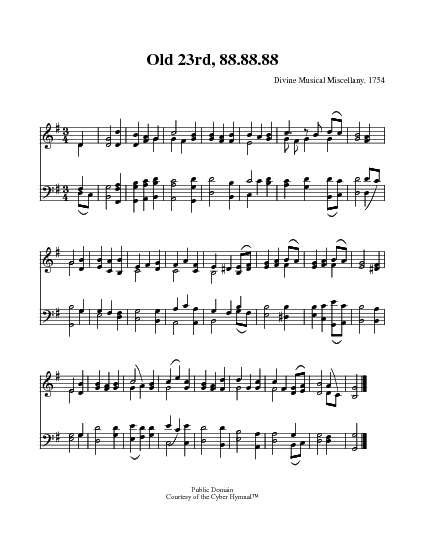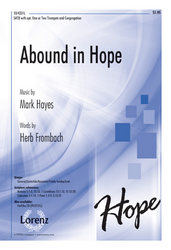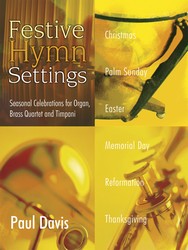- |
User Links
Redemption Found

Now I have found the ground wherein
Author: Johann Andreas Rothe (1727); Translator: John Wesley (1740)Published in 154 hymnals
Printable scores: PDF, MusicXMLAudio files: MIDI
Representative Text
1 Now I have found the ground wherein
Sure my soul’s anchor may remain--
The wounds of Jesus, for my sin
Before the world’s foundation slain;
Whose mercy shall unshaken stay,
When heav'n and earth are fled away.
2 Father, Thine everlasting grace
Our scanty thought surpasses far,
Thy heart still melts with tenderness,
Thy arms of love still open are,
Returning sinners to receive,
That mercy they may taste and live.
3 O Love, Thou bottomless abyss,
My sins are swallowed up in thee!
Covered is my unrighteousness,
Nor spot of guilt remains on me,
While Jesus’ blood, through earth and skies
Mercy, free, boundless mercy! cries.
4 With faith I plunge me in this sea,
Here is my hope, my joy, my rest;
Hither, when hell assails, I flee,
I look into my Savior’s breast.
Away, sad doubt and anxious fear!
Mercy is all that’s written there.
5 Though waves and storms go o’er my head,
Though strength, and health, and friends be gone,
Though joys be withered all and dead,
Though every comfort be withdrawn,
On this my steadfast soul relies--
Father, Thy mercy never dies!
6 Fixed on this ground will I remain,
Though my heart fail and flesh decay;
This anchor shall my soul sustain,
When earth’s foundations melt away.
Mercy’s full pow'r I then shall prove,
Loved with an everlasting love.
Author: Johann Andreas Rothe
Rothe, Johann Andreas, son of Aegidius Rother, pastor at Lissa, near Görlitz, in Silesia, was born at Lissa, May 12, 1688. He entered the University of Leipzig in 1708, as a student of Theology, graduated M.A., and was then, in 1712, licensed at Gorlitz as a general preacher. In 1718 he became tutor in the family of Herr von Schweinitz at Leube, a few miles south of Gorlitz, and while there frequently preached in neighbouring churches. During 1722 Count N. L. von Zinzendorf, happening to hear him preach at Gross-Hennersdorf, was greatly pleased with him, and when the pastorate at Berthelsdorf became vacant shortly thereafter, gave him the presentation. He entered on his duties at Berthelsdorf Aug. 30, 1722. There he took a great interest i… Go to person page >Translator: John Wesley
 John Wesley, the son of Samuel, and brother of Charles Wesley, was born at Epworth, June 17, 1703. He was educated at the Charterhouse, London, and at Christ Church, Oxford. He became a Fellow of Lincoln College, Oxford, and graduated M.A. in 1726. At Oxford, he was one of the small band consisting of George Whitefield, Hames Hervey, Charles Wesley, and a few others, who were even then known for their piety; they were deridingly called "Methodists." After his ordination he went, in 1735, on a mission to Georgia. The mission was not successful, and he returned to England in 1738. From that time, his life was one of great labour, preaching the Gospel, and publishing his commentaries and other theological works. He died in London, in 17… Go to person page >
John Wesley, the son of Samuel, and brother of Charles Wesley, was born at Epworth, June 17, 1703. He was educated at the Charterhouse, London, and at Christ Church, Oxford. He became a Fellow of Lincoln College, Oxford, and graduated M.A. in 1726. At Oxford, he was one of the small band consisting of George Whitefield, Hames Hervey, Charles Wesley, and a few others, who were even then known for their piety; they were deridingly called "Methodists." After his ordination he went, in 1735, on a mission to Georgia. The mission was not successful, and he returned to England in 1738. From that time, his life was one of great labour, preaching the Gospel, and publishing his commentaries and other theological works. He died in London, in 17… Go to person page >Text Information
| First Line: | Now I have found the ground wherein |
| Title: | Redemption Found |
| German Title: | Ich habe nun den Grund gefunden |
| Author: | Johann Andreas Rothe (1727) |
| Translator: | John Wesley (1740) |
| Meter: | 8.8.8.8.8.8 |
| Language: | English |
| Copyright: | Public Domain |
English
- A Collection of Hymns Adapted to the Use of the Methodist Episcopal Church #d397
- A Collection of Hymns Adapted to the use of the Methodist Episcopal Church Including the Whole Collection of the Rev. J. Wesley #ad397
- A Collection of Hymns and a Liturgy for the Use of Evangelical Lutheran Churches: to which are added prayers for families and individuals #119
- A Collection of Hymns and a Liturgy: for the use of Evangelical Lutheran Churches, to which are added prayers for families and individuals (New and Enl. Stereotype Ed.) #119
- A Collection of Hymns and A Liturgy: for the use of Evangelical Lutheran Churches; to which are added prayers for families and individuals #119
- A Collection of Hymns and Prayers, for Public and Private Worship #269
- A Collection of Hymns for Public, Social and Domestic Worship #d580
- A Collection of Hymns for Public, Social, and Domestic Worship #462
- A Collection of Hymns for Public, Social, and Domestic Worship #d580
- A Collection of Hymns for the use of the African Methodist Episcopal Zion Church in America #437 10 shown out of 109
French Creole
Tune
VATER UNSERMartin Luther's versification of the Lord's Prayer was set to this tune in Valentin Schumann's hymnal, Geistliche Lieder (1539); the tune, whose composer remains unknown, had some earlier use. The tune name derives from Luther's German incipit: “Vater unser im Himmelreich….” Because VATER UNSE…
MADRID (Matthews)
William Matthews (b. Ilkeston, Derbyshire, England, 1759; d. Nottingham, England, 1830) composed MADRID (not to be confused with another tune of that name associated with "Come, Christians, Join to Sing") early in the nineteenth century, but it is not clear how the tune acquired its name. Matthews w…
ANCHOR (Beer)
Timeline
Arrangements
Piano/OrganMore Piano/Organ... |  |
ChoralMore Choral... |  |
InstrumentalMore Instrumental... |  |
HandbellsMore Handbells... |  |


 My Starred Hymns
My Starred Hymns


